- Home
- Tim Lebbon
Naming of Parts Page 5
Naming of Parts Read online
Page 5
Jack darted through the gate and out onto the pitted road.
The colours struck him first. Bright colours in a landscape so dull with death.
The car was a blazing yellow, a metal banana his mum would have called it, never lose that in a car park she would say. Inside the car sat a woman in a red dress, and inside the woman moved something else, a squirrel, its tail limp and heavy with her blood. The dress was not all red, he could see a white sleeve and a torn white flap hanging from the open door, touching the road.
Her face had been ripped off, her eyes torn out, her throat chewed away.
There was something else on the road next to the car, a mass of meat torn apart and spread across the Tarmac. Jack saw the flash of bone and an eyeless head and a leg, still attached to the bulky torso by strands of stuff, but they did not truly register. What he did see and understand were the dozen small rodents chewing at the remnants of whatever it had been. Their tails were long and hairless, their bodies black and slick with the blood they wallowed in. They chewed slowly, but not thoughtfully, because there could not have been a single thought in their little dead minds.
“Dad,” Jack gasped, trying to shout but unable to find a breath.
More things lay further towards the pond, and for a terrible moment Jack thought it was another body that had been taken apart (because that’s what he saw, he knew that now, his mind had permitted understanding on the strict proviso that he—)
He turned and puked and fell to his knees in his own vomit, looking up to see his father standing at the gate and staring past him at the car.
Jack looked again, and he realised that although the thing further along the road had once been a person—he could see their head, like a shop dummy’s that had been stepped on and covered in shit and set on fire so the eyes melted and rolled out to leave black pits—there was no blood at all, no wetness there. Nothing chewed on these sad remains.
Dead already when the car ran them over. Standing there in the road, dead already, letting themselves be hit so that the driver—he had been tall, good looking, the girl in his passenger seat small and mouse-like and scared into a gibbering, snotty wreck—would get out and go to see what he had done. Opening himself up to attack from the side, things darting from the ditches and downing him and falling on him quickly…and quietly. No sound apart from the girl’s screams as she saw what was happening, and then her scream had changed in tone.
When they’d had their fill, they dragged themselves away to leave the remains to smaller dead things.
“Oh God, Dad!” Jack said, because he did not want to know any more. Why the hell should he? How the hell did he know what he knew already?
His dad reached down and scooped him up into his arms, pressing his son’s face into his shoulder so he did not have to look any more. Jack raised his eyes and saw his mother walk slowly from the field, and she was trying not to look as well. She stared straight at Jack’s face, her gaze unwavering, her lips tensed with the effort of not succumbing to human curiosity and subjecting herself to a sight that would live with her forever.
But of course she looked, and her liquid scream hurt Jack as much as anything ever had. He loved his mum because she loved him, he knew how much she loved him. His parents had bought him a microscope for Christmas and she’d pricked her finger with a needle so that he could look at her blood, that’s how much she loved him. He hated to hear her scared, hated to see her in pain. Her fear and agony were all his own.
His father turned and ushered his mum down the road, away from the open banana car with its bright red mess, away from the bloody dead things eating up what was left. Jack, facing back over his dad’s shoulder, watched the scene until it disappeared around a bend in the road. He listened to his father’s laboured breathing and his mother’s panicked gasps. He looked at the pale green hedges, where even now hints of rot were showing through. And he wanted to go home.
“Are you scared, Jack?” Mandy had asked.
“No,” he said truthfully.
“Not of me,” she smiled. “Not of Mum and Dad and what’s happening, that’ll sort itself out. I mean ever. Are you ever scared, of things. The dark, spiders, death, war, clowns? Ever, ever, ever?”
Jack went to shake his head, but then he thought of things that did frighten him a little. Not outright petrified, just disturbed, that’s how he sometimes felt. Maybe that’s what Mandy meant.
“Well,” he said, “there’s this thing on telly. It’s
Planet of the Apes, the TV show, not the film. There’s a bit at the beginning with the gorilla army man, Urko, his face is on the screen and sometimes it looks so big that it’s bigger than the screen, it’s really in the room, you know? Well…I hide behind my hands.” “But do you peek?”
“No!”
“I’ve seen that programme,” Mandy said, even though Jack was pretty sure she had not. “I’ve seen it, and you know what? There’s nothing at all to be scared of. I’ll tell you why: the bit that scares you is made up of a whole bunch of bits that won’t. A man in a suit; a camera trick; an actor; a nasty voice. And that man in the suit goes home at night, has a cup of tea, picks his nose and goes to the toilet. Now that’s not very scary, is it?”
Even though he felt ill Jack giggled and shook his head. “No!” He wondered whether the next time he watched that opening sequence, he’d be as scared as before. He figured maybe he would, but in a subtly different way. A grown-up way.
“Fear’s made up of a load of things,” she said, “and if you know those things…if you can name them…you’re most of the way to accepting your fear.”
“But what if you don’t know what it is? What if you can’t say what’s scaring you?”
His sister looked up at the ceiling and tried to smile, but she could not. “I’ve tried it, over the last few days,” she whispered. “I’ve named you, and Mum, and Dad, and the woods, and what happened, and you…out there in the woods, alone…and loneliness itself. But it doesn’t work.” She looked down at Jack again, looked straight into his eyes. “If that happens then it should be scaring you. Real fear is like intense pain. It’s there to warn you something’s truly wrong.”
I hope I always know, Jack thought. I hope I always know what I’m afraid of.
Mandy began singing softly. Jack slept.
“Oh no! Dad, it’s on fire!”
They had left the scene of devastation and towards the farm they’d spotted earlier, intending to find something to eat. It went unspoken that they did not expect to discover anyone alive at the farm. Jack only hoped they would not find anyone dead, either.
They paused in the lane, which was so infrequently used that grass and dock leaves grew in profusion along its central hump. Insipid green grass and yellowed dock now, though here and there tufts of rebellious life still poked through. The puddled wheel ruts held the occasional dead thing swimming feebly.
Jack’s dad raised his binoculars, took a long look at the farm and lowered them again. “It’s not burning. Something is, but it’s not the farm. A bonfire, I think. I think the farmer’s there, and he’s started a bonfire in his yard.”
“I wonder what he could be burning,” Jack’s mother said. She was pale and tired, her left arm tucked between the buttons of her shirt to try to ease the blood loss. Jack wanted to cry every time he looked at her, but he could see tears in her eyes as well, and he did not want to give her cause to shed any more.
“We’ll go and find out.”
“Dad, it might be dangerous. There might be…those people there. Those things.” Dead things, Jack thought, but the idea of dead things walking still seemed too ridiculous to voice.
“We need food, Jack,” his dad said, glancing at his mother as he said it. “And a drink. And some bandages for your mum, if we can find some. We need help.”
“I’m scared, why can’t we just go on to Tewton?”
“And when we get there, and there are people moving around in the streets, will you want to hold back
then? In case they’re the dead things we’ve seen?”
Jack did not answer but he shook his head, because he knew his dad was right.
“I’ll go on ahead slightly,” his dad said, “I’ve got the gun. That’ll stop anything that comes at us. Jack, you help your mum.”
Didn’t stop the other people, Jack thought. And you couldn’t shoot at Mrs Haswell, could you Dad? Couldn’t shoot at someone you knew.
“Don’t go too fast,” his mum said quietly. “Gray, I can’t walk too fast. I feel faint, but if I walk slowly I can keep my head clear.”
He nodded then started off, holding the shotgun across his stomach now instead of dipped over his elbow. Jack and his mother held back for a while and watched him go, Jack thinking how small and scared he looked against the frightening landscape.
“You alright, Mum?”
She nodded but did not turn her head. “Come on, let’s follow your Dad. In ten minutes we’ll be having a nice warm cup of tea and some bread in the farmer’s kitchen.”
“But what’s he burning? Why the bonfire?”
His mother did not answer, or could not. Perhaps she was using all her energy to walk. Jack did the only thing he could and stayed along beside her.
The lane crossed a B-road and then curved around to the farmyard, bounded on both sides by high hedges. There was no sign of any traffic, no hint that anyone had come this way recently. Jack looked to his left where the road rose slowly up out of the valley. In the distance he saw something walk from one side to the other, slowly, as if unafraid of being run down. It may have been a deer, but Jack could not be sure.
“Look,” his mum said quietly. “Oh Jackie, look.”
There was an area of tended plants at the entrance to the farm lane, rose bushes pointing skeletal thorns skyward and clematis smothered in pink buds turning brown. But it was not this his mother was pointing at with a finger covered in blood; it was the birds. There were maybe thirty of them, sparrows from what Jack could make out, though they could just as easily have been siskins that had lost their colour. They flapped uselessly at the air, heads jerking with the effort, eyes like small black stones. They did not make a sound, and that is perhaps why his father had not seen them as he walked by. Or maybe he had seen them and chosen to ignore the sight. Their wings were obviously weak, their muscles wasting. They did not give in. Even as Jack and his mother passed by they continued to flap uselessly at air that no longer wished to support them.
Jack kept his eyes on them in case they followed.
They could smell the bonfire now, and tendrils of smoke wafted across the lane and into the fields on either side. “That’s not a bonfire,” Jack said. “I can’t smell any wood.” His mother began to sob as she walked. Jack did not know whether it was from her pain, or something else entirely.
A gunshot coughed at the silence. Jack’s father crouched down low, twenty paces ahead of them. He brought his gun up but there was no smoke coming from the barrel. “Wait—!” he shouted, and another shot rang out. Jack actually saw the hedge next to his dad flicker as pellets tore through.
“Get away!” a voice said from a distance. “Get out of here! Get away!”
His dad backed down the lane, still in a crouch, signalling for Jack and his mum to back up as well. “Wait, we’re all right, we’re normal, we just want some help.”
There was silence for a few seconds, then another two aimless shots in quick succession. “I’ll kill you!” the voice shouted again, and Jack could tell its owner was crying. “You killed my Janice, you made me kill her again, and I’ll kill you!”
Jack’s dad turned and ran to them, keeping his head tucked down as if his shoulders would protect it against a shotgun blast. “Back to the road,” he said.
“But we could reason with him.”
“Janey, back to the road. The guy’s burning his own cattle and some of them are still moving. Back to the road.”
“Some of them are still moving,” Jack repeated, fascination and disgust—two emotions which, as a young boy, he was used to experiencing in tandem—blurring his words.
“Left here,” his father said as they reached the B-road. “We’ll skirt around the farm and head up towards the woods. Tewton is on the other side of the forest.”
“There’s a big hill first, isn’t there?” his mum said. “A steep hill?”
“It’s not that steep.”
“However steep it is …” But his mum trailed off, and when Jack looked at her he saw tears on her cheeks. A second glance revealed the moisture to be sweat, not tears. It was not hot, hardly even warm. He wished she was crying instead of sweating.
His father hurried them along the road until the farm was out of sight. The smell of the fire faded into the background scent of the countryside, passing over from lush and alive, to wan and dead. Jack could still not come to terms with what he was seeing. It was as if his eyes were slowly losing their ability to discern colours and vitality in things, the whole of his vision turning into one of those sepia-tinted photographs he’d seen in his grandmother’s house, where people never smiled and the edges were eaten away by time and too many thumbs and fingers. Except the bright red of his mother’s blood was still there, even though the hedges were pastel instead of vibrant. His dad’s face was pale, yes, but the burning spots on his cheeks—they flared when he was angry or upset, or both—were as bright as ever. Some colours, it seemed, could not be subsumed so easily.
“We won’t all fade away, will we Dad? You won’t let me and Mum and Mandy fade away, will you?”
His dad frowned, then ruffled his hair and squeezed the back of his neck. “Don’t worry son. We’ll get to Tewton and everything will be all right. They’ll be doing something to help, they’re bound to. They have to.”
“Who are ‘they’, Dad?” Jack said, echoing his mum’s question from that morning.
His dad shook his head. “Well, the government. The services, you know, the police and fire brigade.”
Maybe they’ve faded away too, Jack thought. He did not say anything. It seemed he was keeping a lot of his thoughts to himself lately, making secrets. Instead, he tried naming some of his fears—they seemed more expansive and numerous every time he thought about them—but there was far too much he did not know. Fear is like pain, Mandy had told him. Maybe that’s why his mum was hurting so much now. Maybe that’s why he felt so much like crying. Underneath all the running around and the weirdness of today, perhaps he was truly in pain.
They followed the twisting road for ten minutes before hearing the sound of approaching vehicles.
“Stand back,” Jack’s dad said, stretching out and ushering Jack and his mum up against the hedge. Jack hated the feel of the dead leaves and buds against the back of his neck. They felt like long fingernails, and if he felt them move…if he felt them twitch and begin to scratch …
The hedges were high and overgrown here, though stark and sharp in death, and they did not see the cars until they were almost upon them. They were both battered almost beyond recognition, paint scoured off to reveal rusting metal beneath. It’s as if even the cars are dying, Jack thought, and though it was a foolish notion it chilled him and made him hug his dad.
His dad brought up the gun. Jack could feel him shaking. He could feel the fear there, the tension in his legs, the effort it was taking for him to breathe.
“Dad?” he said, and he was going to ask what was wrong. He was going to ask why was he pointing a gun at people who could help them, maybe give them a lift to Tewton.
“Oh dear God,” his mum said, and Jack heard the crackle as she leant back against the hedge.
There were bodies tied across the bonnets of each car. He’d seen pictures of hunters in America, returning to town with deer strapped across the front of their cars, parading through the streets with kills they had made. This was not the same, because these bodies were not kills. They were dead, yes, but not kills, because their heads rolled on their necks, their hands twisted at th
e wrist, their legs shook and their heels banged on the hot metal beneath them.
Jack’s father kept his gun raised. The cars slowed and Jack saw the faces inside, young for the most part, eyes wide and mouths open in sneers of rage or fear or mockery, whatever it was Jack could not tell. Living faces, but mad as well.
“Wanna lift?” one of the youths shouted through the Ital’s smashed windscreen.
“I think we’ll walk,” Jack’s dad said.
“It’s not safe.” The cars drifted to a standstill. “These fuckers are everywhere. Saw them eating a fucking bunch of people on the motorway. Ran them over.” He leaned through the windscreen and patted the dead woman’s head. She stirred, her eyes blank and black, skin ripped in so many places it looked to Jack like she was shedding. “So, you wanna lift?”
“Where are you going?” Jack asked.
The boy shrugged. He had a bleeding cut on his face; Jack was glad. The dead don’t bleed. “Dunno. Somewhere where they can figure out what these fuckers are about.”
“Who are ‘they’?” Jack’s dad asked.
The youth shrugged again, his bravado diluted by doubt. His eyes glittered and Jack thought he was going to cry, and suddenly he wished the youth would curse again, shout and be big and brave and defiant.
“We’ll walk. We’re going to Tewton.”
“Yes, Mandy rang and said it’s safe there!” Jack said excitedly.
“Best of luck to you then, little man,” the driver said. Then he accelerated away. The second car followed, frightened faces staring out. The cars—the dead and the living—soon passed out of sight along the road.
“Into the fields again,” Jack’s dad said. “Up the hill to the woods. It’s safer there.”
Safer among dead things than among the living, Jack thought. Again, he kept his thought to himself. Again, they started across the fields.

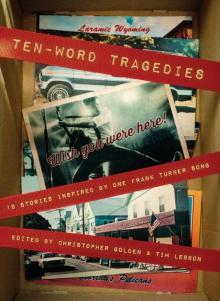 Ten-Word Tragedies
Ten-Word Tragedies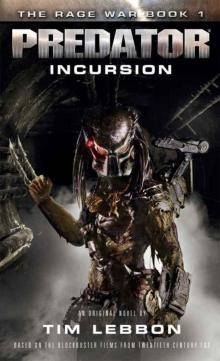 Predator: Incursion
Predator: Incursion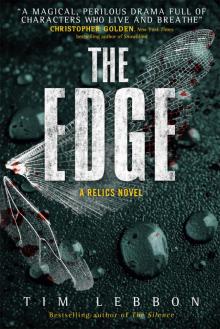 Relics--The Edge
Relics--The Edge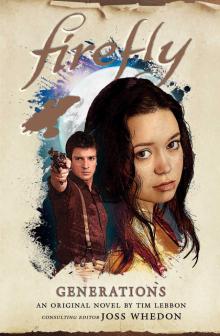 Firefly
Firefly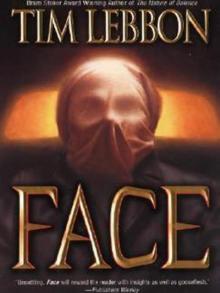 Face
Face Generations
Generations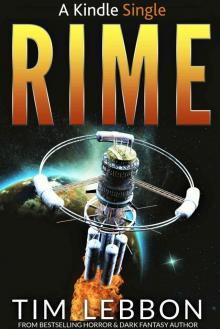 RIME (Kindle Single)
RIME (Kindle Single) Fallen
Fallen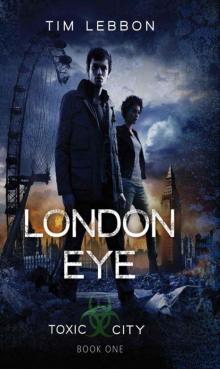 London Eye tc-1
London Eye tc-1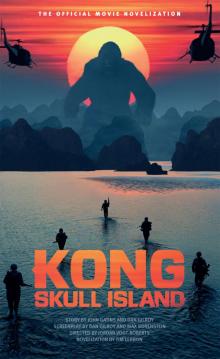 Kong: Skull Island
Kong: Skull Island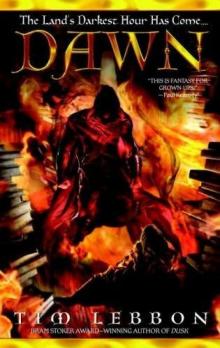 Dawn n-2
Dawn n-2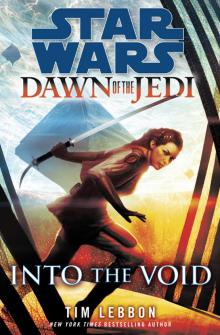 Into the Void: Star Wars (Dawn of the Jedi)
Into the Void: Star Wars (Dawn of the Jedi)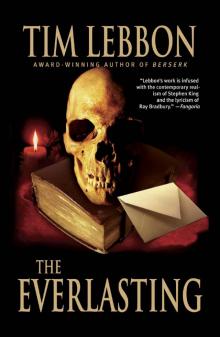 The Everlasting
The Everlasting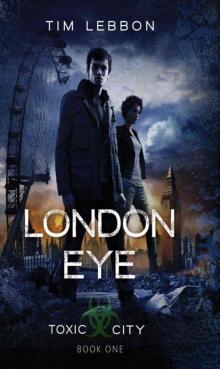 London Eye: 1 (Toxic City)
London Eye: 1 (Toxic City)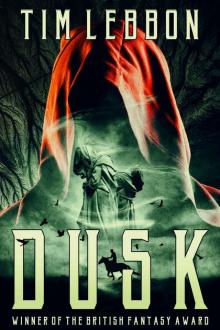 Dusk: a dark fantasy novel (A Noreela novel)
Dusk: a dark fantasy novel (A Noreela novel)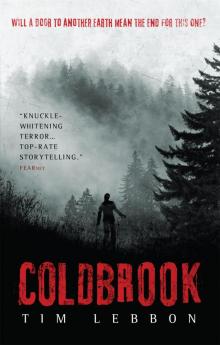 Coldbrook
Coldbrook Alien
Alien Dusk
Dusk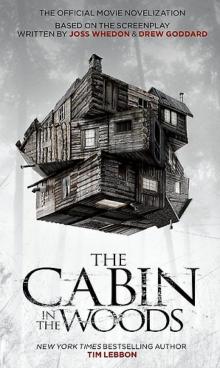 The Cabin in the Woods
The Cabin in the Woods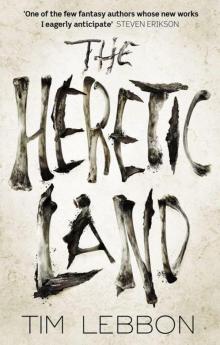 The Heretic Land
The Heretic Land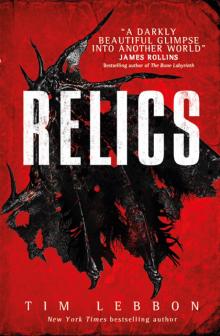 Relics
Relics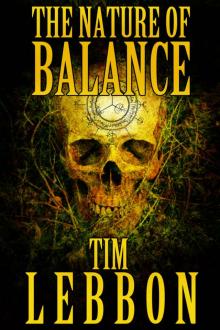 The Nature of Balance
The Nature of Balance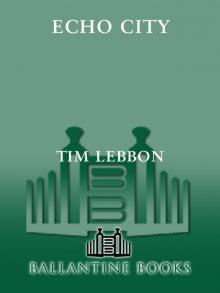 Echo City
Echo City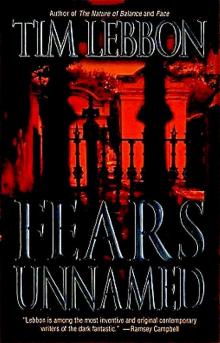 Tim Lebbon - Fears Unnamed
Tim Lebbon - Fears Unnamed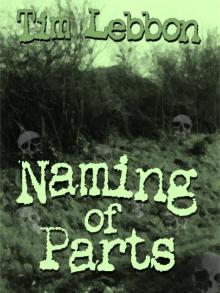 Naming of Parts
Naming of Parts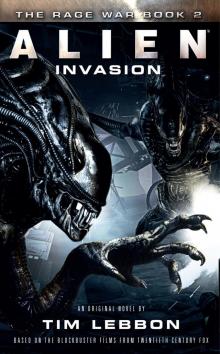 Alien--Invasion
Alien--Invasion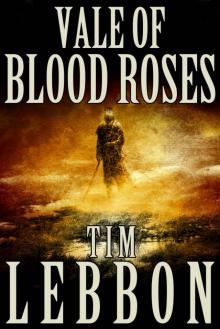 Vale of Blood Roses
Vale of Blood Roses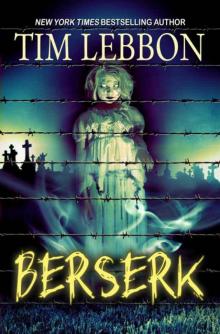 Berserk
Berserk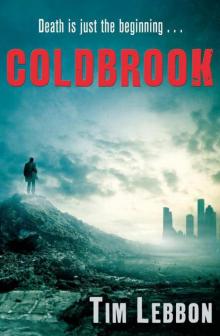 Coldbrook (Hammer)
Coldbrook (Hammer)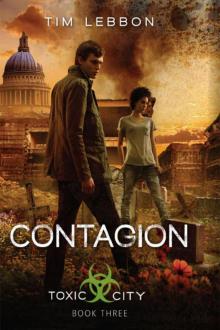 Contagion tc-3
Contagion tc-3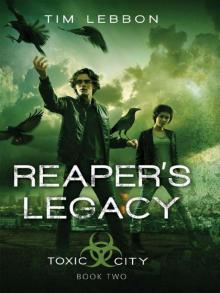 Reaper's Legacy: Book Two (Toxic City)
Reaper's Legacy: Book Two (Toxic City)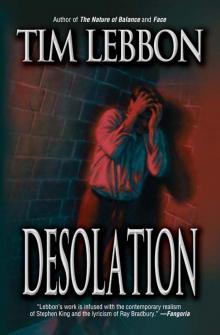 Desolation
Desolation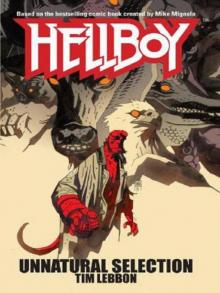 Unnatural Selection
Unnatural Selection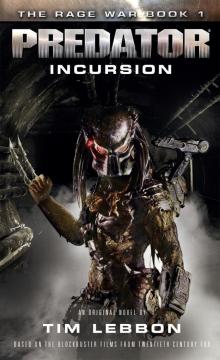 Predator - Incursion
Predator - Incursion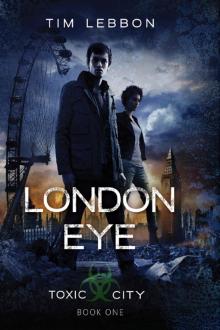 London Eye
London Eye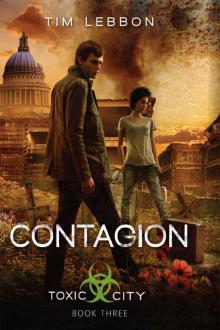 Contagion (Toxic City Book Three)
Contagion (Toxic City Book Three) The Silence
The Silence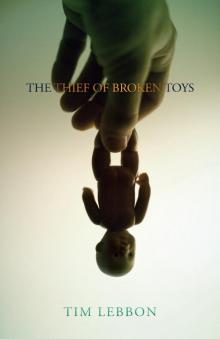 The Thief of Broken Toys
The Thief of Broken Toys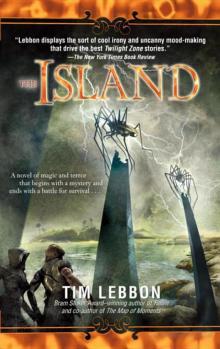 Tales of Noreela 04: The Island
Tales of Noreela 04: The Island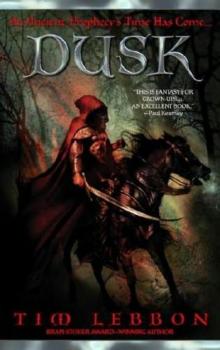 Dusk n-1
Dusk n-1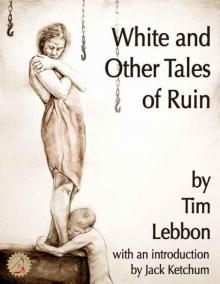 White and Other Tales of Ruin
White and Other Tales of Ruin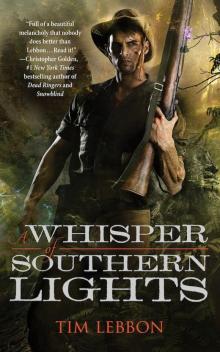 A Whisper of Southern Lights
A Whisper of Southern Lights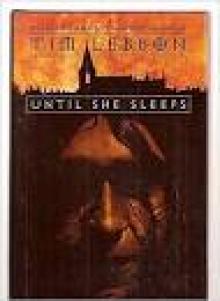 Until She Sleeps
Until She Sleeps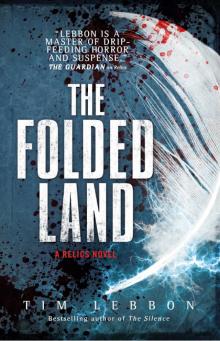 Relics--The Folded Land
Relics--The Folded Land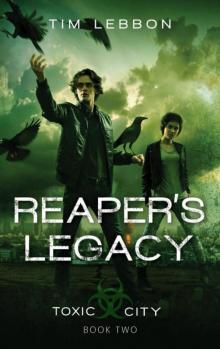 Reaper's Legacy tc-2
Reaper's Legacy tc-2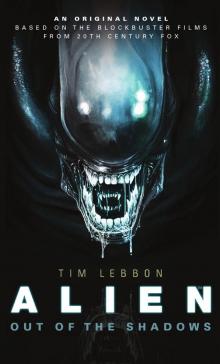 Alien: Out of the Shadows
Alien: Out of the Shadows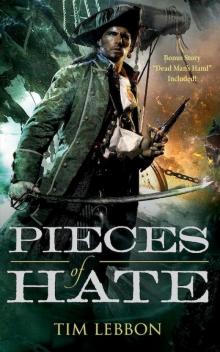 Pieces of Hate
Pieces of Hate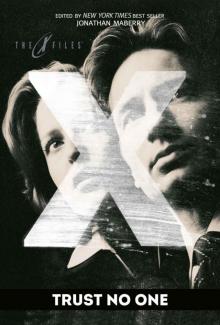 X-Files: Trust No One
X-Files: Trust No One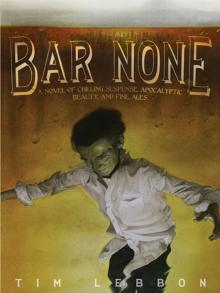 Bar None
Bar None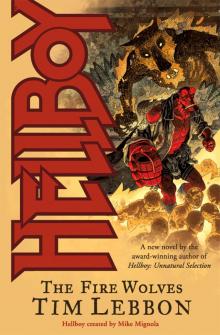 The Fire Wolves
The Fire Wolves